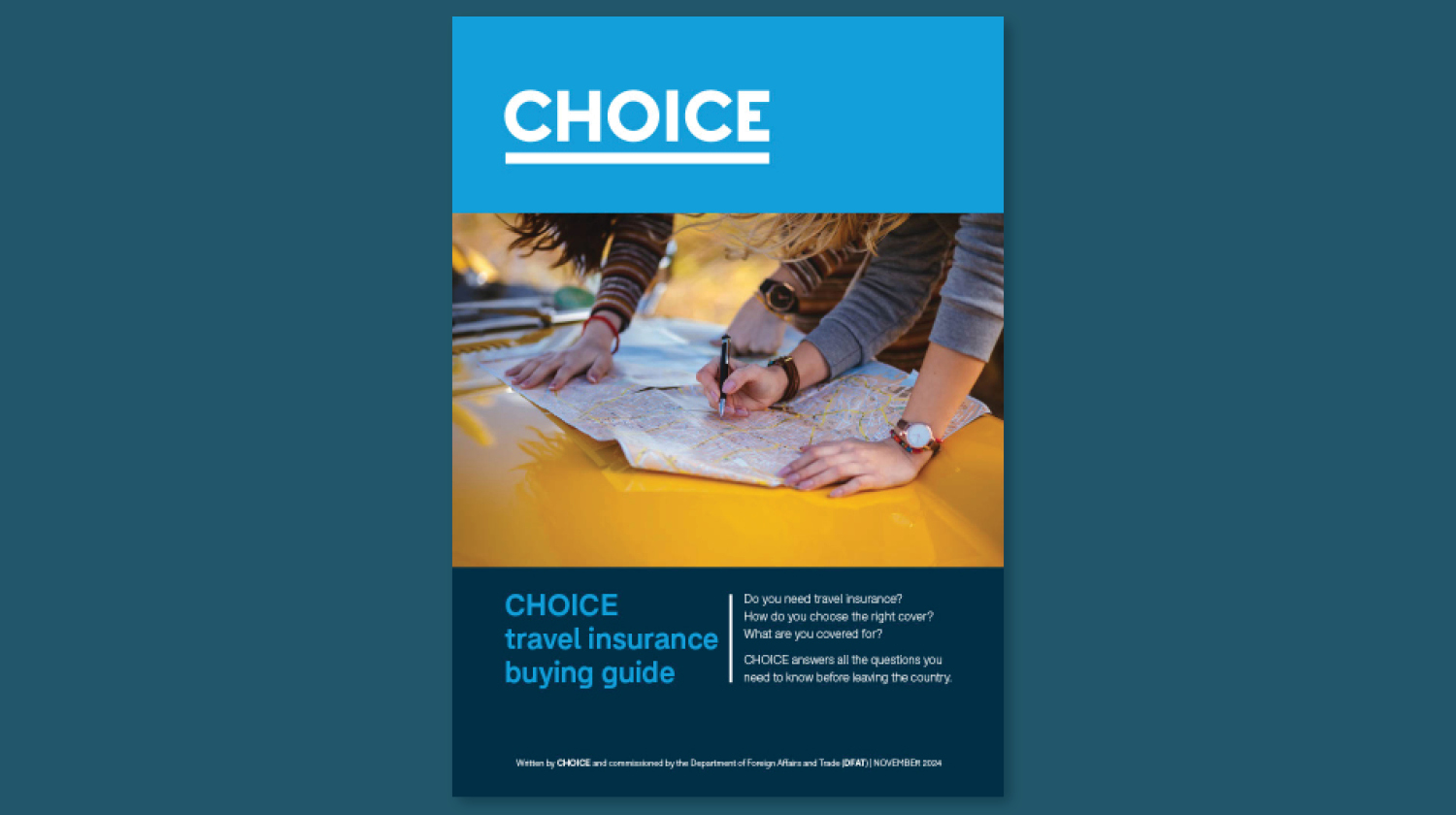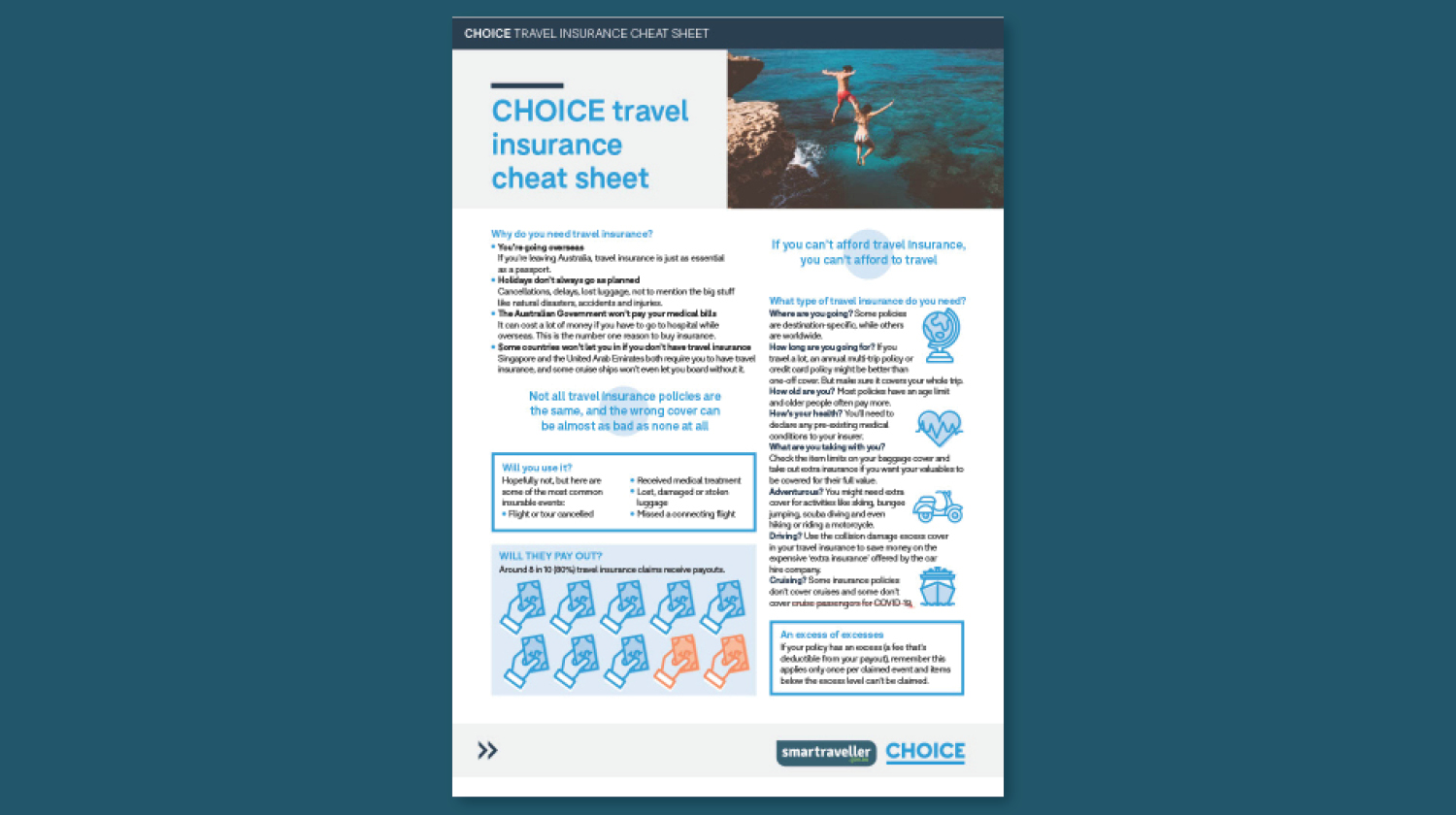We partner with CHOICE to give you an easy-to-read guide on how to choose the best travel insurance for your trip. Download a printable copy of the guide or read it online below.
Who is CHOICE? Set up by consumers for consumers, CHOICE is the independent consumer advocate that provides Australians with information and advice, free from commercial bias. Visit choice.com.au.
Download the guide


Read the guide online
Why get travel insurance?
If you’re leaving Australia, travel insurance is just as essential as a passport.
Have you read the product disclosure statement (PDS)?
Always check the fine print before you buy. Here's how.
Credit card travel insurance
Credit card policies differ from standalone policies, so it’s essential you check the fine print.
